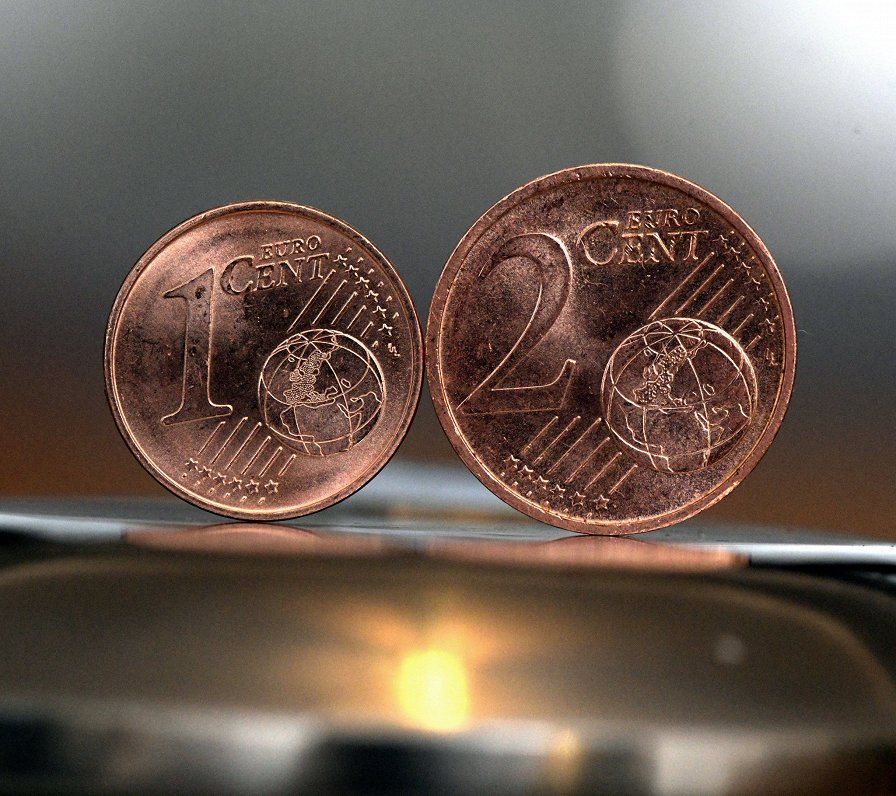"The share of the public supporting the discontinuation of the small denomination coins, i.e. 1 and 2 cent coins, has reached 49%, exceeding the share of the public expressing the view that these coins should remain in circulation (46%)," LB said.
In February 2023, 41% of the respondents took the view that the small denomination coins should be withdrawn from circulation, while 50% maintained that these coins should remain in circulation. The largest-ever support for reviewing the denominations of euro cent coins was recorded in February 2022 when 51% of the respondents supported the plan to discontinue 1 and 2 cent coins.
Zita Zariņa, Member of the Council of Latvijas Banka said that over time, public support for reviewing the structure of euro coin denominations has risen and there have been active discussions with the institutions and businesses involved in cash circulation explaining this idea and searching for the best solutions for Latvia, its population and businesses.
"Latvijas Banka has been measuring public mood in this matter since 2016, when the withdrawal of small denomination coins from circulation was backed by 26% – half the current share," said Zariņa.
"Let me remind you of the heart of the idea – giving up 1 and 2 cent coins would mean the introduction of the rounding rules, i.e. the rounding of the total amount of the purchase, instead of the price. For instance, if the total amount of the purchase were 12.23 euro, the actual amount payable in cash at the cash register would be 12.25 euro. Meanwhile, if the shopping cart contained items worth 12.22 euro, the customer would pay 12.20 euro at the cash register. The experience of other countries suggests that such practice does not affect inflation rates since, in the daily cash transactions, part of the amount is rounded up, while another part is rounded down.
"Over time, public support for reviewing the structure of euro coin denominations has risen and there have been active discussions with the institutions and businesses involved in cash circulation explaining this idea and searching for the best solutions for Latvia, its population and businesses.
"Latvijas Banka has developed a draft law on rounding the total amount of a cash payment. Currently, discussions are underway with the Ministry of Finance and the State Revenue Service as to how the rounding of the total amount of a cash purchase (and not the price of individual items!) might be implemented in practice.
"The greatest challenge involves adapting the cash registers and cash register systems to reflect the rounding of the total amount of a purchase in the receipt. Merchants should not only implement the changes in the systems, but also certify them in accordance with the current laws and regulations. This would significantly affect costs and increase the implementation time. Currently, Latvijas Banka, in cooperation with the Ministry of Finance, is looking for the most business-friendly solution to this problem," said Zariņa.
"Every year, 80.6% of the issued 1 cent coins and 69.3% of the issued 2 cent coins do not return to circulation in Latvia. This could indicate that part of the coins is lost and may pollute the environment with pathogens found on coins and copper which is potentially toxic to living organisms. It should be noted that minting a 1 cent coin costs more than the actual denomination of this coin, while the production costs of 2 cent coins are practically equal to their denomination. Withdrawing coins from circulation would allow us to limit the impact on climate and the environment as well as reduce the related processing and production costs," she added.





























